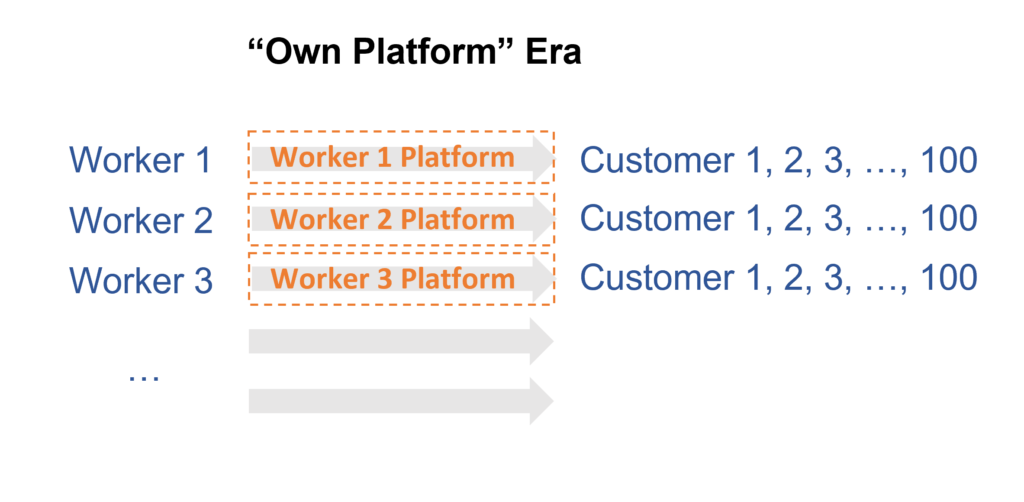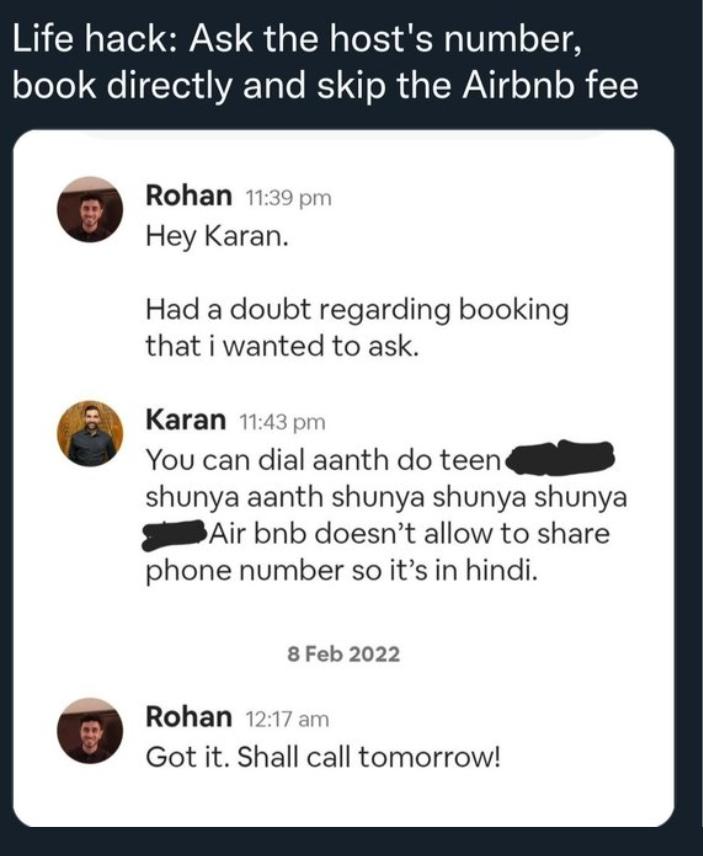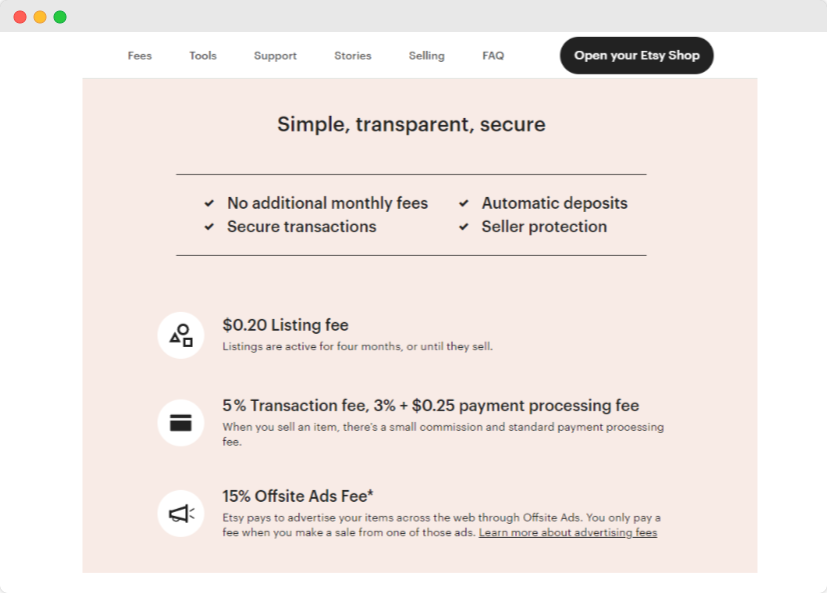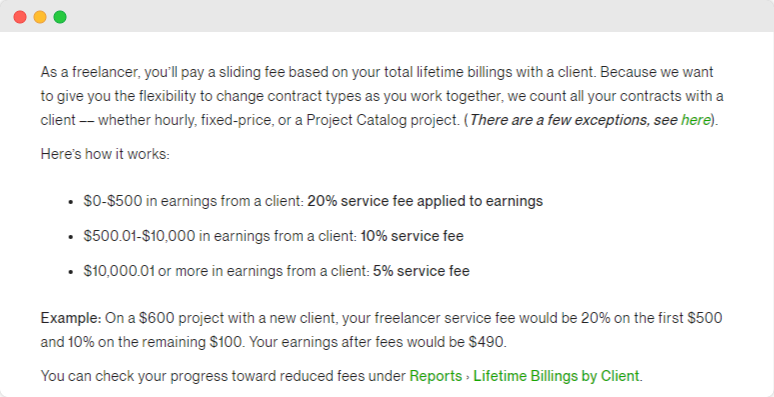Disintermediation is the next step in e-commerce and online services.
In the past work was quite simple.
Workers worked in a company. The company sold to clients.
This is the model that every 9-5 job represents and we would call this the ‘Organization Man’ era.
In the past years, we’ve seen many people switch to independent employment and followed their passion for online businesses. Freelancers, artists, all kinds of consultants, and independent creators turned up to platforms like Uber, Craigslist, Etsy, and Upwork.
This graph represents this change quite well (courtesy of Li Jin’s material on unbundling).

This is one example of partial disintermediation (the company is removed from the picture).
No doubt, these platforms are multiplying the income of creators and small businesses.
But workers don’t own these platforms. Most importantly, they pay commissions and don’t have their own branding.
The time has come for the ‘Own Platform’ Era.

💡 Pro tip
If you are looking for ways to own a platform, which can support online video calls, appointment scheduling, and booking, this is what you need to research.
In this article, we’ll help you understand:
What is disintermediation?
To understand disintermediation, first, let’s understand what an intermediary is.
An intermediary is a bridge between sellers and buyers.
In a traditional scenario, intermediaries are people who help connect service providers with their customers (e.g. insurance agents and salespersons). In return, they take a commission for the sales made.
Banks for instance are financial intermediaries. They help your money move from your account to another person’s account.
In the online market, intermediaries are third-party platforms that allow individuals and small businesses to showcase their offerings and attract buyers to shop for goods and services on these platforms (e.g., marketplaces).
So what does disintermediation mean?
Disintermediation is the process of removing the middleman between a seller and buyer in a transaction.
The end result is that sellers connect directly with the consumers to sell their products without the involvement of a third party.
Disintermediation in the ‘Own platform’ Era means:
- no intermediaries to eat up revenue
- increase in profits
- direct communication with customers
- better customer experience
- a community of like-minded people,
- branding and credibility for your business

Examples of where disintermediation can help?
Historically, one of the best examples of disintermediation in business is that of Dell. The tech giant switched to a direct-selling model after facing a significant loss in 1993. They realized the misalignment with the retail market—so started selling PCs directly to their customers.

They focused on building direct customer relationships and offering customized PCs, which they could not do in a retail setup.
But being Dell is a bit of a stretch.
In fact, most of the business online is driven by small business owners.
Small business owners are the unrecognized faces that stay behind the curtains—selling their products and services.
These are the sellers that sell you products on Amazon.
These are the hosts that host you on Airbnb.
These are the course creators that teach you on Udemy.
These are the artists that sell on Etsy.
These are the writers you read on Medium.
These are the drivers that drive you on Uber.
Amazon, Airbnb, Udemy, Etsy, and Medium are great marketplaces, where the whole world is buying and selling.
Amazon Basics and Amazon Essentials didn’t exist before. Amazon had all the data about all the purchases on Amazon. What it did was start sourcing them itself and branding them as Basics and Essentials.
Other platforms are changing their fees and terms of use all the time. While workers can create through these platforms, they are always running the so-called: platform risk.
Platform risk is the risk that the platform changes its terms of use or completely bans you from using it.
This risk is central to any platform or marketplace that you do not own.
This is why you need to diversify or eliminate this risk.
How?
Through disintermediation, or removing the middleman.
How disintermediation benefits small business owners
Disintermediation sounds complicated but in fact, many people are engaging in it. They are circumventing platforms to reap the benefits.

Source: Twitter
Sellers are now disintermediating their sales approach and customers are moving away from purchasing through these third-party platforms.
It’s natural – sellers want to earn more.
And guess what. Buyers are happy to help the underdog, rather than the multi-billion dollar platform.
Instead, they buy directly from the seller’s website or platforms.
Disintermediation uplifts small businesses to:
- sell their products and services
- interact with their customers
- operate their business
- build better relationships
Of course, platforms give you a fair safety net when you don’t know each other. However, for recurring purchases, platforms could be (and are) circumvented.
You can build your own brand
Selling on Amazon?
Do your clients know?
Probably not.
To them, they are simply buying from Amazon.
The relationship is NOT between you and the client. It’s between Amazon and the client.
Through disintermediation, you can work on building your own brand and selling under your name.
When you build a personal brand, you can cut off third-party platforms, sell directly to your customers, and make more profit.
You are in complete control of your business
When you (as a seller or provider of services) don’t like something about Amazon, Airbnb, Etsy, Uber, etc. you can’t change it.
Examples are higher shipping charges, delivery dates, discounts, etc.
But in your direct relationship with the customer, you can do what you want.
You can build a stronger bond with the customer and develop a long-term relationship.
You own your customers’ contacts
Imagine you create content on LinkedIn or Youtube, and someday, these platforms ban your account.
It’s not unheard of.
On the contrary – here’s a list of notable suspensions. Recently all big platforms banned Andrew Tate (once the most followed person on TikTok). While there are reasons for this, Mr. Tate could have removed the intermediaries (in this case social media) and continued communicating with his followers.
And yes, these examples are on the bad side. But there have also been a number of cases where creators who have not done anything wrong get (wrongfully) banned.
One example is one of my favorite creators: CGP Grey – who got banned from YouTube for several days for no apparent reason. His account was reinstated later but he said he felt “as if the last few years of his life were lost forever”.
You know what's terrifying? After spending 8 years building a channel on @YouTube waking up on a Sunday morning to find your access suspended. (Videos still up though?)
— CGP Grey 🐝 (@cgpgrey) September 22, 2019
¯_(ツ)_/¯
Extra grateful for my patrons now – I'd be panicked without you guys. https://t.co/r864pHeQcc pic.twitter.com/5VSTPQVWEP
CGP Grey had a backup plan – his Patreon.
Yet another platform.
How about removing the risk completely – have a direct connection with your clients, in your own database.
How do big companies restrict the revenue stream of small and medium-sized businesses?
Big companies clock hundreds of millions of dollars in profits every year.
They earn a massive chunk of their revenue as a commission from small and mid-sized businesses eating up a large portion of sales generated by these businesses on their platforms.
Take a look at how Etsy is charging fees from artists and emptying the revenue of small businesses.

Here’s another one by Upwork, which charges a whopping fee from freelancers and agencies.

When you pay an additional 10% on the extra $100 earned after $500—you lose $110 as commission to Upwork.
You can cop out these third-party platforms and maximize your revenue with the right strategy.
How to use disintermediation for your online business?
Let’s look at the same examples from before and see how to disintermediate.
Most of the time you would be looking at marketplaces and you would want to remove your dependence on them.
You should be aiming to get these crucial things right:
- Sell on your own domain
- Have a database with direct contacts of your customers
- Eliminate the commission
Ecommerce
Instead of listing your goods on Amazon, you can do so on your own website. Use WordPress + WooCommerce and see the magic happen.
A Shopify app is an alternative that does not disintermediate completely but will help you hit those boxes (own domain and direct relationship).
And don’t get me wrong, no need to stop selling on Amazon.
But building your own platform to diversify your sales is always worth it.
Rent
Build your own website.
Sure, Airbnb lets you get discovered but you don’t go through Airbnb when you are renting to a friend or a friend of a friend, right?
No need to pay the commission.
Make baby steps and build another place where you can rent your flat.
One that you own.
Have all your recurring customers go there.
Online courses
Selling courses on Udemy could be life-changing, especially for tutors and teachers. Yet, Udemy has increased the commission it charges from 30% to 60-70% in the last few years.
Wondering why Udemy courses are so cheap? Udemy dictates all the prices (~$10 per sale).
It might be a good idea to put your courses up on other platforms.
Teachable and Podia are two examples where you can put the courses on your own domain and have a database of clients. Still, they would be charging a commission, albeit much smaller.
Writing
Medium has been the cool kid on the block for many years in terms of writing. However, in the eyes of Medium content creators are secondary.
They’ve released limited options for ownership – subdomains (on Medium again), people can choose to opt-in and leave their email to you (spoiler alert – nobody does that).
They do have payouts but not in all countries. I, for one, have never received anything for the millions of views I’ve brought them.
Substack came to change this. And they ticked some of the boxes – custom domain, database with your readers. Unfortunately, they opted for a 10% commission.
Your writing belongs to your own blog.
Online services
You can list your services on marketplaces like Upwork. However, you get no branding, no domain, and run all the risks that intermediaries present you with.
If you know how to find clients, it may be wiser to look in other places.
3veta is one example, where you can charge for your meetings and services. At the same time, you can maintain ownership of your contacts, on your domain name, and without sharing any of the revenue with the platform.
3veta allows you to build your own platform.
💡 Pro tip
If you are looking to build your own platform where you can provide your online services, this is what you need to check out.
Conclusion
Things are never black and white.
There are upsides to using big platforms but there are also downsides.
The best strategy is to diversify the risk and have a backup plan in your pocket by owning your distribution channels.
If your business relies on video conferencing and scheduling, we can help.
Check out our offering over here or contact us at support@3veta.com.
